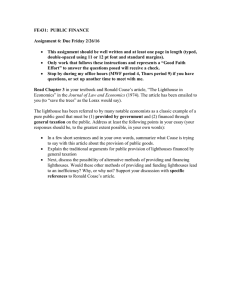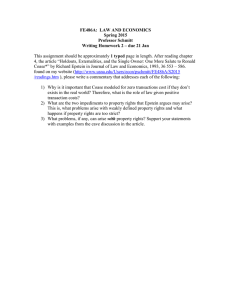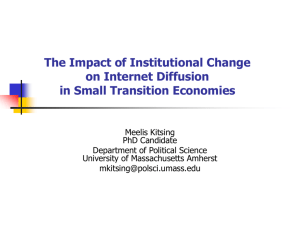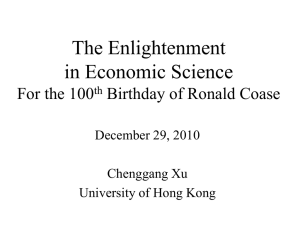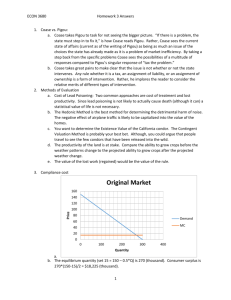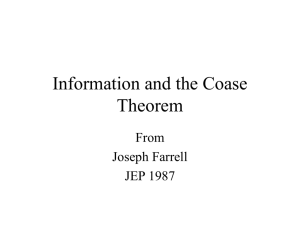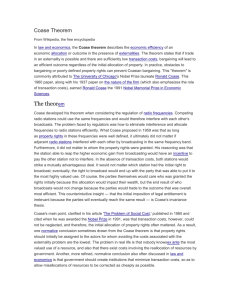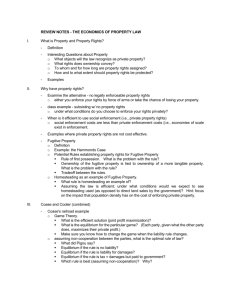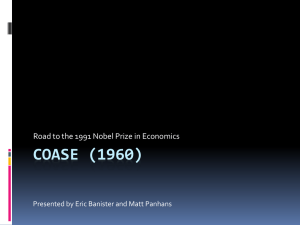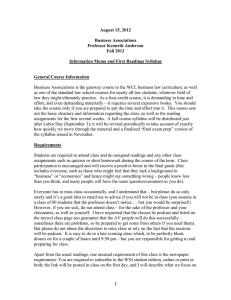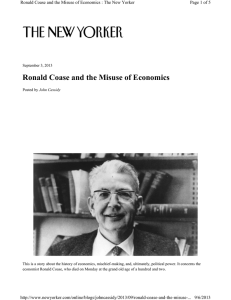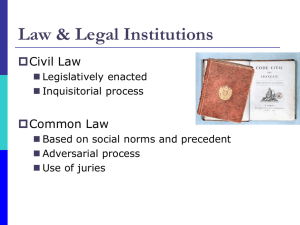Econ 201 (Spring 2007), Ch10 Externalities
advertisement
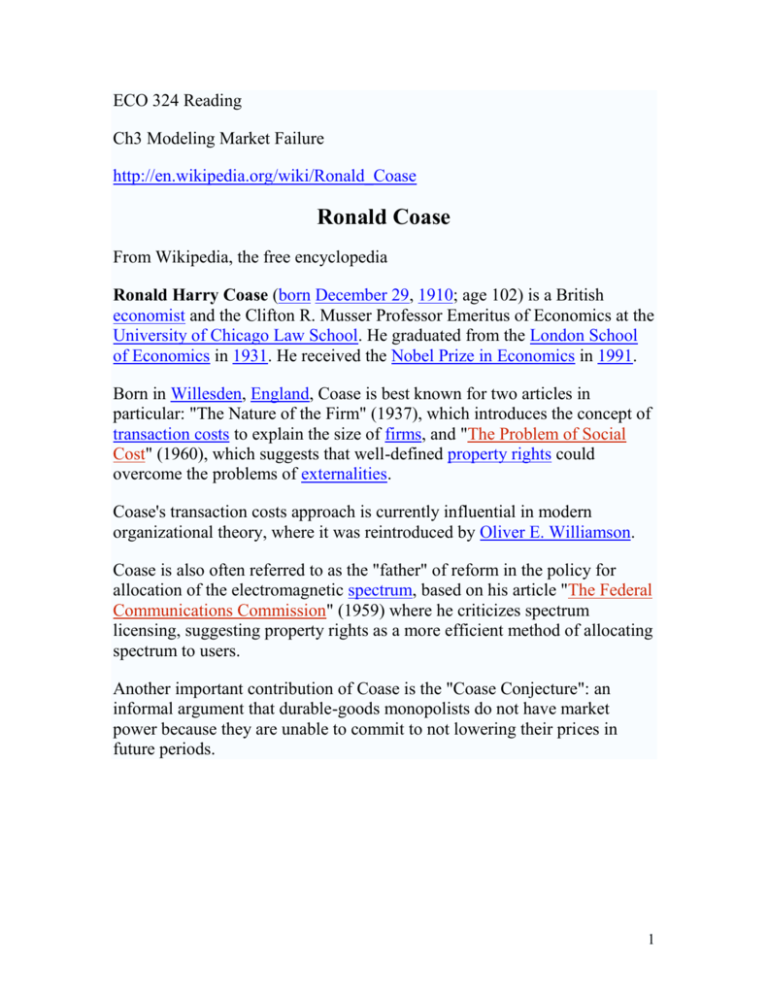
ECO 324 Reading Ch3 Modeling Market Failure http://en.wikipedia.org/wiki/Ronald_Coase Ronald Coase From Wikipedia, the free encyclopedia Ronald Harry Coase (born December 29, 1910; age 102) is a British economist and the Clifton R. Musser Professor Emeritus of Economics at the University of Chicago Law School. He graduated from the London School of Economics in 1931. He received the Nobel Prize in Economics in 1991. Born in Willesden, England, Coase is best known for two articles in particular: "The Nature of the Firm" (1937), which introduces the concept of transaction costs to explain the size of firms, and "The Problem of Social Cost" (1960), which suggests that well-defined property rights could overcome the problems of externalities. Coase's transaction costs approach is currently influential in modern organizational theory, where it was reintroduced by Oliver E. Williamson. Coase is also often referred to as the "father" of reform in the policy for allocation of the electromagnetic spectrum, based on his article "The Federal Communications Commission" (1959) where he criticizes spectrum licensing, suggesting property rights as a more efficient method of allocating spectrum to users. Another important contribution of Coase is the "Coase Conjecture": an informal argument that durable-goods monopolists do not have market power because they are unable to commit to not lowering their prices in future periods. 1
